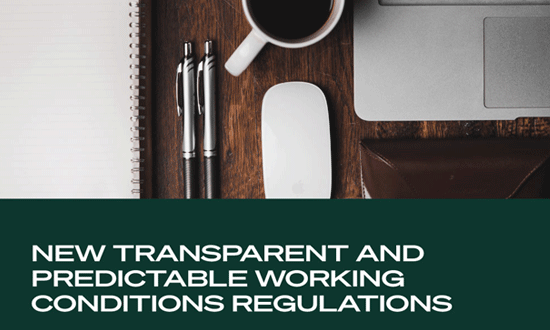A Bill seeking to amend Chapter 452 of the Laws of Malta, the Employment and Industrial Relations Act (‘the Act’), has been tabled before the House of Representatives. The Bill seeks to partially transpose Directive (EU) 2019/1152 on transparent and predictable working conditions, most notably as regards the probationary period of fixed-term contracts.
The Bill seeks to impose proportionality between the length of the probationary period and the length of the fixed-term contract, as well as the nature of the role.
The proposed law clearly stipulates that in the case of a renewal of a fixed-term contract for the same function and task previously assigned to the employee, such employment relationship shall not be subject to a new probationary period.
The Bill proposes the following most noteworthy amendments:
1. No fixed-term contract shall be shorter than six (6) months unless a shorter period is justified by objective reasons based on precise and concrete circumstances characterising a given activity.
2. Whenever an employer intends to enter into an employment contract for a fixed term with a prospective employee for a period shorter than six (6) months, the employer must provide for the objective reasons for which the contract is entered into for less than six (6) months within the employment contract.
3. In a fixed term contract of between six (6) months and fifteen (15) months duration, the probationary period shall be calculated on the basis of two (2) months probationary period per six (6) months contract duration.
4. If the fixed term contract is shorter than six (6) months, the probationary period shall be one-third of the duration of the same fixed term contract.
5. In a fixed term contract exceeding fifteen (15) months duration, the probationary
period shall be of six (6) months maximum.
6. Workers holding technical, executive, administrative or managerial positions and whose wages are at least double the national minimum wage established that year shall be on probation for a period of twelve (12) months.
7. The employer and employee may always agree to a shorter probationary period than that set out in terms of law.
8. The probationary period shall be suspended in the case of any two (2) weeks or more of approved leave, in which case the probationary period shall be extended to a corresponding duration of the leave. Indeed, it shall be unlawful for an employer to dismiss a worker during the period of suspension of probation.
The newly proposed rules will therefore disallow the common practice of imposing a probationary period for the full period of the fixed-term contract. This common practice has had the effect of vitiating the penalty imposed at law on the terminating party in a fixed-term contract for the payment of half of the wages that the employee would have otherwise been due for the remaining period of the fixed-term contract, in case of no good and sufficient cause for termination.
The Bill is still being discussed at a legislative level and further amendments to such Bill may therefore be implemented. We shall continue to monitor developments on this front and shall be issuing further updates on the subject.
How can we help?
We may assist with any ad hoc advice on the matter. Contact us on paul.gonzi@fenechlaw.com and mattea.pullicino@fenechlaw.com.








